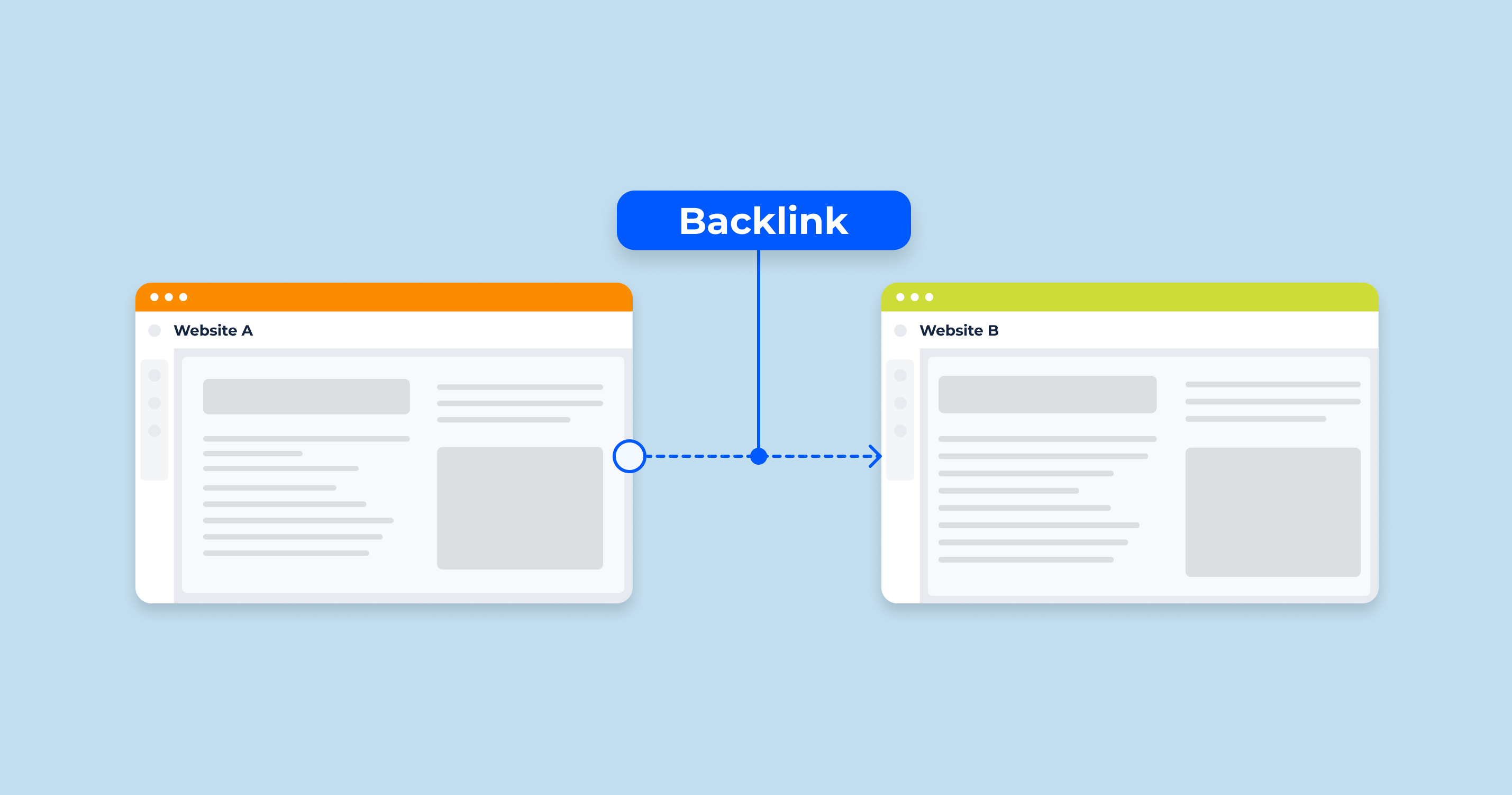What Are Website Backlinks And Why They Matter For Your Online Success
Backlinks are the secret sauce behind a successful website, but not everyone understands what they really are or how they work. Imagine this: you're scrolling through Google search results, and you notice some websites rank higher than others. Why does this happen? The answer lies in backlinks – the invisible threads that connect websites together. In this article, we'll break down everything you need to know about backlinks, from their definition to their impact on your online presence.
Now, you might be wondering, "Do I really need to care about backlinks?" The short answer is yes. Backlinks play a crucial role in SEO, and they can make or break your website's performance. Think of them as votes of confidence from other sites, telling search engines that your content is trustworthy and valuable.
Before we dive deeper, let's get one thing straight: backlinks aren't just about quantity. You can't just spam links and expect to rank higher. It's all about quality, relevance, and strategy. So, stick around as we unravel the mysteries of backlinks and show you how to leverage them for your website's success.
- Gia Model The Rising Star In The World Of Fashion
- Shows About Candy Montgomery A Deep Dive Into The Fascinating True Crime Sensation
Understanding the Basics of Website Backlinks
What Exactly Are Backlinks?
Backlinks, also known as inbound links or incoming links, are hyperlinks from one website to another. When another site links to your content, it's like they're giving you a shoutout or a nod of approval. It's kind of like saying, "Hey, this content is worth checking out!"
For example, if a popular tech blog writes an article about the best smartphones and links to your site for a specific product review, that's a backlink. It tells search engines that your content is relevant and authoritative in that particular niche.
Now, here's the kicker: not all backlinks are created equal. A link from a high-authority site, like CNN or Forbes, carries more weight than a link from a random blog with little to no traffic. It's all about the quality of the referring site and how relevant it is to your niche.
- Unveiling The Enigma Hisashi Ouchi Dna And Its Impact On Science
- How Tall Is Actor Neil Flynn A Comprehensive Guide To The Actors Height And Career
Why Are Backlinks Important for SEO?
Boosting Your Website's Credibility
Backlinks are like endorsements from other websites. The more reputable sites that link to your content, the more credible your site appears to search engines. Think of it as a popularity contest, but for websites. The more quality backlinks you have, the higher your chances of ranking well in search results.
Let me give you a real-world analogy. Imagine you're attending a networking event, and someone introduces you to a group of people. If that person is well-respected and influential, others are more likely to take you seriously. Similarly, when a high-authority site links to your content, it boosts your site's reputation in the eyes of search engines.
But here's the thing: you can't just rely on backlinks alone. They're just one piece of the SEO puzzle. You still need great content, a user-friendly website, and other on-page SEO factors to truly succeed.
Types of Backlinks and Their Impact
Dofollow vs. Nofollow Backlinks
Not all backlinks pass the same amount of "link juice" to your site. There are two main types of backlinks: dofollow and nofollow. Dofollow backlinks are the ones that pass SEO value to your site, while nofollow backlinks don't. However, don't dismiss nofollow links entirely – they can still drive traffic and improve brand awareness.
- Dofollow links: These are the gold standard for backlinks. They help improve your site's ranking by passing SEO value to your pages.
- Nofollow links: While they don't pass SEO value, they can still drive traffic and increase your site's visibility.
For instance, social media platforms often use nofollow links. So, while a link from Twitter or Facebook won't directly boost your rankings, it can still bring visitors to your site, which is valuable in its own right.
How to Build Quality Backlinks
Guest Blogging
One of the most effective ways to build backlinks is through guest blogging. This involves writing articles for other websites in your niche and including a link back to your site. It's a win-win situation: the host site gets fresh content, and you get valuable backlinks.
Here's a tip: don't just focus on getting the backlink. Make sure your guest post provides real value to the host site's audience. This will increase the chances of your content being shared and attracting even more backlinks in the future.
For example, if you're in the fitness industry, you could write a guest post for a popular health blog about the benefits of a specific workout routine. Include a link to your site where readers can find more information or purchase related products.
The Role of Content in Backlink Building
Creating Link-Worthy Content
At the end of the day, the best way to attract backlinks is by creating content that people actually want to link to. This could be anything from in-depth guides and infographics to entertaining videos and case studies. The key is to produce something that stands out and provides real value to your audience.
Let me share a little secret: numbers and statistics tend to attract backlinks like crazy. If you can include some fresh, original research in your content, you'll likely see a surge in backlinks. People love citing statistics, especially when they're unique and relevant to their audience.
For instance, if you conduct a survey on consumer behavior in your niche and publish the results, other sites might link to your content to back up their own articles. It's a powerful way to establish your site as an authority in your industry.
Tools to Monitor and Analyze Backlinks
Using SEO Tools to Track Your Backlink Profile
Once you start building backlinks, it's important to monitor them regularly. Tools like Ahrefs, SEMrush, and Moz can help you track your backlink profile and identify any issues. You can see which sites are linking to you, the quality of those links, and how they're impacting your rankings.
Here's why this matters: sometimes, you might get backlinks from spammy or low-quality sites. These can actually harm your SEO efforts, so it's crucial to disavow them using Google's Disavow Tool. By keeping an eye on your backlink profile, you can ensure that only high-quality links are pointing to your site.
For example, if you notice a sudden spike in backlinks from unrelated or suspicious sites, it could be a sign of a potential link scheme. Acting quickly can save you from potential penalties from search engines.
Common Backlink Mistakes to Avoid
Don't Overdo It with Low-Quality Links
One of the biggest mistakes people make when building backlinks is focusing on quantity over quality. Sure, having a ton of backlinks might sound impressive, but if they're all from irrelevant or spammy sites, they can do more harm than good.
Another common mistake is buying backlinks. While it might seem like a quick fix, it's against Google's guidelines and can lead to severe penalties. Always aim for natural, organic backlinks that come from genuine interest in your content.
For instance, if you're running a fashion blog, getting backlinks from tech sites or gambling sites won't do much for your SEO. Stick to sites that are relevant to your niche and have a similar target audience.
Case Studies: Successful Backlink Strategies
Real-Life Examples of Backlink Wins
To give you a better idea of how backlinks work in practice, let's look at a couple of case studies. One well-known example is Moz's Whiteboard Friday series. By consistently producing high-quality, educational content, Moz attracted thousands of backlinks from other SEO professionals and websites.
Another great example is Neil Patel's approach to content marketing. He often creates massive, comprehensive guides on topics like SEO, digital marketing, and web analytics. These guides naturally attract backlinks because they're so valuable and informative.
What can you learn from these examples? Focus on creating content that solves problems, answers questions, or entertains your audience. If your content is truly remarkable, people will naturally want to link to it.
The Future of Backlinks in SEO
How Backlinks Will Evolve
As search engine algorithms continue to evolve, the role of backlinks in SEO is likely to change. While they'll still be an important ranking factor, search engines are getting better at understanding context and relevance. This means that backlinks from highly relevant sites will carry even more weight in the future.
Additionally, user engagement metrics like click-through rates and time on site are becoming increasingly important. So, while backlinks will remain a key factor, they'll need to be supported by other elements like great content, fast loading times, and a mobile-friendly design.
For example, a site with fewer backlinks but higher user engagement might outrank a site with more backlinks but lower engagement. This highlights the importance of focusing on the overall user experience, not just backlinks alone.
Conclusion: Take Action and Build Those Backlinks
Now that you know what website backlinks are and why they matter, it's time to take action. Start by creating high-quality, link-worthy content that resonates with your audience. Then, explore guest blogging opportunities and leverage SEO tools to monitor your backlink profile.
Remember, backlinks aren't the only factor in SEO, but they're a crucial piece of the puzzle. By building a strong backlink profile, you'll improve your site's credibility, drive more traffic, and ultimately achieve better rankings in search results.
So, what are you waiting for? Start working on your backlink strategy today and watch your website soar to new heights. And don't forget to leave a comment or share this article if you found it helpful!
Table of Contents
- Understanding the Basics of Website Backlinks
- Why Are Backlinks Important for SEO?
- Types of Backlinks and Their Impact
- How to Build Quality Backlinks
- The Role of Content in Backlink Building
- Tools to Monitor and Analyze Backlinks
- Common Backlink Mistakes to Avoid
- Case Studies: Successful Backlink Strategies
- The Future of Backlinks in SEO
- Conclusion: Take Action and Build Those Backlinks



Detail Author:
- Name : Bobbie Waters
- Username : gblanda
- Email : flatley.mohamed@gmail.com
- Birthdate : 2005-05-23
- Address : 9573 Altenwerth Mall Suite 664 Lake Nevachester, HI 48016
- Phone : 872.698.4347
- Company : Lebsack-Hudson
- Job : Photographic Processing Machine Operator
- Bio : Iusto recusandae quia molestias laudantium doloremque nostrum labore ullam. In officia unde unde. Beatae minus consequatur eius autem est ullam et. Quia omnis ullam voluptatem qui.
Socials
facebook:
- url : https://facebook.com/oleta.weber
- username : oleta.weber
- bio : Sint alias et cumque repudiandae magni.
- followers : 5784
- following : 2219
linkedin:
- url : https://linkedin.com/in/weber1976
- username : weber1976
- bio : Qui veritatis necessitatibus minus optio quo.
- followers : 6455
- following : 2207